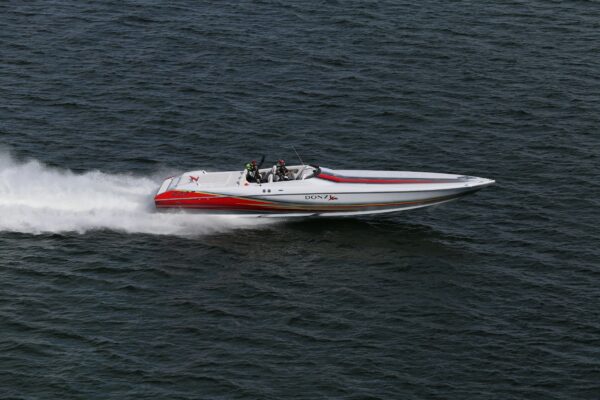Reduce the boat noise

When you live around so much water, you get used to the sounds of people enjoying summer. Kids screaming and splashing, some dude playing guitar on a dock, the putt-putt of a fishing boat, canoeists’ conversations floating across the lake.
What you shouldn’t have to get used to is the unrelenting noise created by a small percentage of users: the ones operating personal watercraft and especially the increasingly loud pleasure boats roaring up and down our lakes.
Anyone who spends any time on or off our shores can tell you that local waterways are louder than they’ve ever been. A 2021 survey by the national body Safe Quiet Lakes found that two-thirds of the 6,000 Ontario respondents said there was more or much more boat noise than five years ago. It’s a safe bet that upward trajectory has continued in the years since.
Unfortunately, the federal legislation governing the noise of watercraft engines is imprecise and therefore hard to enforce, although Safe Quiet Lakes has proposed changes that would clarify what exactly counts as too loud. At the moment, the law requires boats to have a muffler within five nautical miles of land, with exemptions for vintage craft, but is regularly flouted on lakes here and all over the province.
Since most people don’t have a decibel meter at the ready, Safe Quiet Lakes suggests a simple test: “If a boat drives by at speed and people on shore find it hard to hear each other or have to raise their voices to be heard, then the boat is considered excessively loud.”
It’s hard to get inside the head of someone who consciously opts for an earsplitting watercraft or exhaust system over a quieter one. Ultimately, though, like so many things in this life, the solution comes down to common sense and common courtesy.
As you’ve read in these pages recently, loud cars and trucks, often modified to be much louder than they otherwise would be, are a menace in parts of Kawartha Lakes. The same is true for our beautiful waterways. Little wrecks a pleasant swim or lakeside afternoon faster than boats without proper mufflers or whose owners have intentionally gone for a “look-how-loud-and-fast-my-boat-is” flex.
To owners of these unnecessarily loud watercraft: You’re making life unpleasant for the rest of us. Please be more considerate of the hundreds of people affected by your recreation. An extra-noisy boat or personal watercraft is a choice, not an inevitability.
When it comes to reducing boating speeds to prevent unnecessary wake, we have rules, signs and accepted behaviour. Wouldn’t it be nice if the same were true of excessive engine noise?




